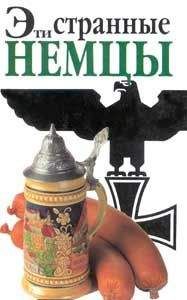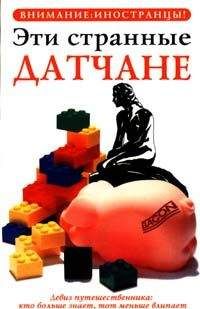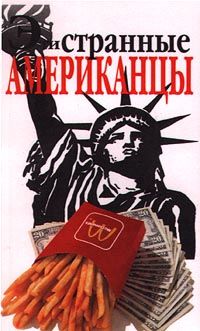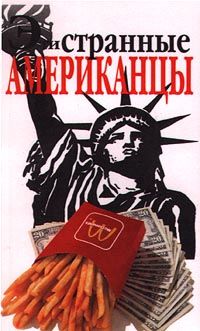Неизвестен Автор - Словарь американских идиом (8000 единиц)
[strike one's colors] See: HAUL DOWN ONE'S COLORS.
[strike one's fancy] <v. phr.> To please one's predilections; appeal to one. * /The red tie with the yellow dragon on it happened to strike my fancy, so I bought it./
[strike] or [hit a sour note] <v. phr.> To spoil the mood at a gathering by hearing some bad news. * /The news of Mr. Brown's sudden illness struck a sour note during our New Year's Eve party./ Compare: SPIT INTO THE WEDDING CAKE.
[strike out] <v.> 1. To destroy something that has been written or drawn by drawing a line or cross through it or by erasing it. * /John misspelled "corollary. " He struck it out and wrote it correctly./ 2. To begin to follow a new path or a course of action that you have never tried. * /The boy scouts struck out at daybreak over the mountain pass./ * /John quit his job and struck out on his own as a traveling salesman./ 3. To put (a batter) out of play by making him miss the ball three times; also: To be put out of play by missing the ball three times. * /The pitcher struck out three men in the game./ * /The batter struck out twice./ 4. To push out an arm suddenly in a hitting motion. * /The boxer saw his chance and struck out at his opponent's jaw./
[strike out at] <v. phr.> To attack someone verbally or physically. * /She was so angry that she struck out at him every occasion she got./
[strike the hour] <v. phr.> To mark or toll the hour (said of clocks or bells). * /We heard the church clock strike the hour of two./
[strike up] <v.> 1a. To start to sing or play. * /We were sitting around the camp fire. Someone struck up a song, and we all joined in./ * /The President took his place on the platform, and the band struck up the national anthem./ 1b. To give a signal to start (a band) playing. * /When the team ran on the field, the band director struck up the band./ 2. To bring about; begin; start. * /The policeman struck up a conversation with John while they were waiting for the bus./ * /It did not take Mary long to strike up acquaintances in her new school./
[strike while the iron is hot] See: MAKE HAY WHILE THE SUN SHINES.
[string] See: FIRST STRING, LATCH STRING, ON THE STRING or ON A STRING, PULL STRINGS, PURSE STRINGS, SHOE-STRING CATCH, TIED TO ONE'S MOTHER'S APRON STRINGS.
[string along] <v.>, <informal> 1. To deceive; fool; lead on dishonestly. * /Mary was stringing John along for years but she didn't mean to marry him./ * /George told the new boy that he must always call the teacher "Sir," but the new boy soon saw that George was stringing him along./ Compare: ON A STRING. 2. To follow someone's leadership; join his group. * /Those of you who want to learn about wild flowers, string along with Jake./
[string out] <v.> To make (something) extend over a great distance or a long stretch of time. * /The telephone poles were strung out along the road as far as we could see./ * /Mary and Ann did not have much to say but they did not want to go home. They strung out their gossip for a long time./
[string up] <v.>, <slang> To put a rope around the neck of a person and choke him to death; hang. * /The posse strung up the rustler without a trial./ Compare: NECKTIE PARTY.
[strings attached] <adv. phr.> With some special proviso or condition that is a handicap. * /John inherited a large fortune but with the string attached that he could not touch a penny of it before his 28th birthday./
[strip] See: DRAG STRIP.
[stripe] See: MIDFIELD STRIPE.
[stroke] See: AT A STROKE or AT ONE'S STROKE.
[stroke of luck] See: RUN OF LUCK.
[strong language] <n. phr.> Cursing; swearing. * /When Ned learned that he had been fired, he used some very strong language about his boss./
[strung out] <adj.>, <slang>, <colloquial> 1. Nervous, jittery, jumpy; generally ill because of drug use or withdrawal symptoms. * /The only explanation I can think of for Max's behavior is that he must be strung out./ 2. To suffer because of a lack of something previously accustomed to, such as the love and affection of someone. * /Sue is all strung out for Jim; they've just split up./ Compare: SPACED OUT.
[stuck on] <slang> Very much in love with; crazy about. * /Judy thinks she is very pretty and very smart. She is stuck on herself./ * /Lucy is stuck on the football captain./
[stuck-up] <adj.>, <informal> Acting as if other people are not as good as you are; conceited; snobbish. * /Mary is very stuck-up, and will not speak to the poor children in her class./
[stuck with] <adj. phr.> Left in a predicament; left having to take care of a problem caused by another. * /Our neighbors vanished without a trace and we got stuck with their cat and dog./
[study] See: BROWN STUDY.
[stuff] See: KNOW ONE'S WAY AROUND(2).
[stuff and nonsense] <n.> Foolish or empty writing or talk; nonsense. * /Fred told a long story about his adventures in Africa, but it was all stuff and nonsense./ Often used as an interjection. * /When Jane said she was too sick to go to school, her mother answered, "Stuff and nonsense! I know there's a test today."/
[stuff the ballot box] <v. phr.> To give more votes to a candidate in an election than there are people who actually voted for him. * /It is a crime to stuff the ballot box./ - [ballot-stuffing] <adj. phr.>
[stuffed shirt] <n. phr.> A pretentious bore; a pompous, empty person. * /I think that Howard is a terrible stuffed shirt with no sense of humor./
[stuffed up] <adj. phr.> Impeded; blocked. * /Our kitchen sink is all stuffed up so I have to call the plumber./
[stumble across] <v. phr.> To encounter a person or thing, mostly by accident. * /I gave up looking for my old hat when I accidentally stumbled across it in a dark corner of the closet./
[stump] See: TAKE THE STUMP or TAKE TO THE STUMP, UP A STUMP.
[style] See: CRAMP ONE'S STYLE, HIGH STYLE.
[subject to] <adj. phr.> 1. Under the government or control of; in the power of. * /The English colonies in America were subject to the English king./ * /The principal and the teachers of a school are subject to the school board./ 2. Likely to get or have; liable. * /John is in rather poor health and is subject to colds./ * /The western plains are subject to tornadoes./ 3. Depending on some change, happening, or need. * /The company and the union agreed that the workers' wages should be subject to changes in the cost of living./ * /Agreements made by the President with other countries are subject to the approval of the Senate./
[substance] See: IN SUBSTANCE.
[succeed] See: HOWLING SUCCESS, NOTHING SUCCEEDS LIKE SUCCESS.
[such and such] <pron.> Something whose name is not mentioned because it does not need to be mentioned. * /George's argument tries to prove such and such to be true, but it does not convince me./
[such-and-such] <adj. phr.> Being one whose name has been forgotten or whose name does not need to be mentioned. * /She told me to go to such-and-such a street and turn right./ * /Suppose, now, that we have such-and-such a group coming to the school, and we don't have enough chairs. What do we do then?/
[such as] <conj.> 1. Of a kind or amount shown or named; of a kind like. * /The explorer took only such men and things as he really needed into the jungle with him./ * /They felt such heat in the jungle as they had never felt before./ * /Many different pies were in the bakery such as apple, cherry, and blueberry pies./ 2. Of the average or ordinary kind; poor; humble. * /Such as the food was, there was plenty of it./ * /The room is not very nice, but such as it is, you may stay there for the night./
[such as it is] Just as it appears or is presented, not being any better or worse than most others of its kind; being average or mediocre. * /This pie, such as it is, is the best I can make./ * /Jane told her grandmother her grades, such as they were./
[such that] <conj.> Of a kind or amount that; so great or so little that; enough that. * /There was such a big line at me movie that we had to wait before we could get in./ * /Jimmy made such noise that his sister told him to be quiet./ * /Mother's answer was such that she didn't say yes and she didn't say no./
[sucker list] <n.>, <slang> A list of easily-fooled people, especially people who are easily persuaded to buy things or give money. * /The crook got hold of a sucker list and started out to sell his worthless stock./ * /Mr. Smith gets so many advertisements in his mail that he says he is on every sucker list in the country./
[suck in] <v.> 1. <informal> To pull in by taking a deep breath and tightening the muscles; flatten. * /"Suck in those stomachs," the gym teacher said./ 2. <slang> To make a fool of; cheat. * /The uneducated farmer was sucked in by a clever crook./
[sugar daddy] <n.>, <slang>, <semi-vulgar>, <avoidable> An older, well-to-do man, who gives money and gifts to a younger woman or girls usually in exchange for sexual favors. * /Betty Morgan got a mink coat from her sugar daddy./
[suit] See: BIRTHDAY SUIT, FOLLOW SUIT.
[suit to a T] See: TO A T.
[suit up] <v. phr.> To don a uniform or sports outfit. * /The veterans like to suit up for the Fourth of July parade./
[suit yourself] <v. phr.>, <informal> To do what one likes or prefers. * /"I don't care where you want to sleep," he said. "Suit yourself!"/
[sum total] <n.> The final amount; everything taken together; total. * /The sum total of expenses for the trip was $450./ * /Ten years was the sum total of John's education./
[sum up] <v.> To put something into a few words; shorten into a brief summary; summarize. * /The teacher summed up the lesson in three rules./ * /The mailman's job, in all kinds of weather, is summed up in the phrase "Deliver the mail."/
[sun] See: UNDER THE SUN.
[sunbelt] <n.>, <informal> A portion of the southern United States where the winter is very mild in comparison to other states. * /The Simpsons left Chicago for the sunbelt because of Jeff's rheumatism./
[Sunday] See: MONTH OF SUNDAYS.
[Sunday best] or [Sunday-go-to-meeting clothes] See: BEST BIB AND TUCKER.
[sunny-side up] <adj.> Fried on one side only. * /Barbara likes her eggs sunny-side up./
[supper] See: COVERED-DISH SUPPER or POTLUCK SUPPER.
[supply] See: IN SHORT SUPPLY.
[sure] See: FOR SURE, MAKE SURE, TO BE SURE.
[sure enough] <adv.> As expected. * /Charles was afraid he had done badly on the test, and sure enough, his grade was failing./ * /The children saw a familiar shape coming up the street and hoped it was their lost dog. When it came near, sure enough, it was Spot./ Compare: SURE THING(2).
[sure-enough] <adj.> Real; genuine. * /Rick found a sure-enough nickel./ * /Martha's uncle gave her a sure-enough pearl on a little gold chain./ * /Jane's uncle is a sure-enough cowboy./
[surefire] <adj.> Without fail; effective; bringing actual results. * /During a campaign the only surefire way to get the sympathy of the voters is to mingle with them in person./
[sure thing] 1. <n.>, <informal> Something sure to happen; something about which there is no doubt. * /It's no fun betting on a sure thing./ 2. <adv.> Of course; certainly * /Sure thing, I'll be glad to do it for you./ Compare: FOR SURE(2), SURE ENOUGH.
[surface] See: SCRATCH THE SURFACE.
[surprise] See: TAKE BY SURPRISE.
[survival of the fittest] <n. phr.> The staying alive or in action of the best prepared; often: idea that those living things best able to adjust to life survive and those unable to adjust die out. * /Life in the old West was often a case of survival of the fittest./ * /With changes in the world's climate, dinosaurs died but many smaller animals lived on. It was survival of the fittest./ * /On the 50-mile hike it was survival of the fittest; only 12 out of 25 Scouts finished./
[suspicion] See: ABOVE SUSPICION.
[swallow] See: LOOK LIKE THE CAT THAT ATE THE CANARY.
[swallow hook, line, and sinker] See: HOOK, LINE, AND SINKER.
[swallow one's pride] <v. phr.> To bring your pride under control; humble yourself. * /After Bill lost the race, he swallowed his pride and shook hands with the winner./ Compare: EAT ONE'S WORDS,
[swallow one's words] 1. To speak unclearly; fail to put enough breath into your words. * /Phyllis was hard to understand because she swallowed her words./ 2. See: EAT ONE'S WORDS.
[swallow up] <v. phr.> To do away with; absorb; engulf. * /My expenses are so great that they swallow up my modest salary./
[swan song] <n. phr.>, <literary> A farewell or last appearance. * /The famous soprano gave her swan song in La Traviata before she retired./
[SWAT team] <n.>, <informal> Police unit trained for especially hazardous or sensitive law-enforcement assignments; short for Special Weapons and Tactics. * /Joe made the SWAT team of the NYPD due to his athletic skills./
[swathe] See: CUT A SWATHE.
[swear by] <v.> 1. To use as the support or authority that what you are saying is truthful; take an oath upon. * /A witness swears by the Bible that he will tell the truth./ * /In ancient Greece a doctor swore by Apollo, the god of healing, that he would be a good doctor./ * /John swore by his honor he would return the bike./ 2. To have complete confidence in; be sure of; trust completely. * /When John has to go somewhere fast, he swears by his bike to get there./ * /We can be sure that Fred will come on time, since his friend Tom swears by him./
[swear in] or [swear into] <v.> To have a person swear or promise to do his duty as a member or an officer of an organization, government department, or similar group. - "Swear into" is used when the name of the group is given. * /Mary and Ann will be sworn into the club tonight./ * /Fred was sworn in as class president./ * /Many new men were sworn into the army last month./ * /At the inauguration, the Chief Justice of the Supreme Court swore in the new President./
[swear off] <v.>, <informal> To give up something you like or you have got in the habit of using by making a promise. * /Mary swore off candy until she lost ten pounds./ * /John has sworn off dessert for Lent./
[swear out] <v.> To get (a written order to do something) by swearing that a person has broken the law. * /The policeman swore out a warrant for the suspect's arrest./ * /The detectives swore out a search warrant./
[sweat] See: BY THE SWEAT OF ONE'S BROW.
[sweat blood] <v. phr.>, <slang> 1. To be very much worried. * /The engine of the airplane stopped, and the pilot sweated blood as he glided to a safe landing./ 2. To work very hard. * /Jim sweated blood to finish his composition on time./
[sweat out] <v.>, <informal> To wait anxiously; worry while waiting. * /Karl was sweating out the results of the college exams./ * /The search plane signaled that help was on the way. The men in the lifeboat just had to sweat it out./




